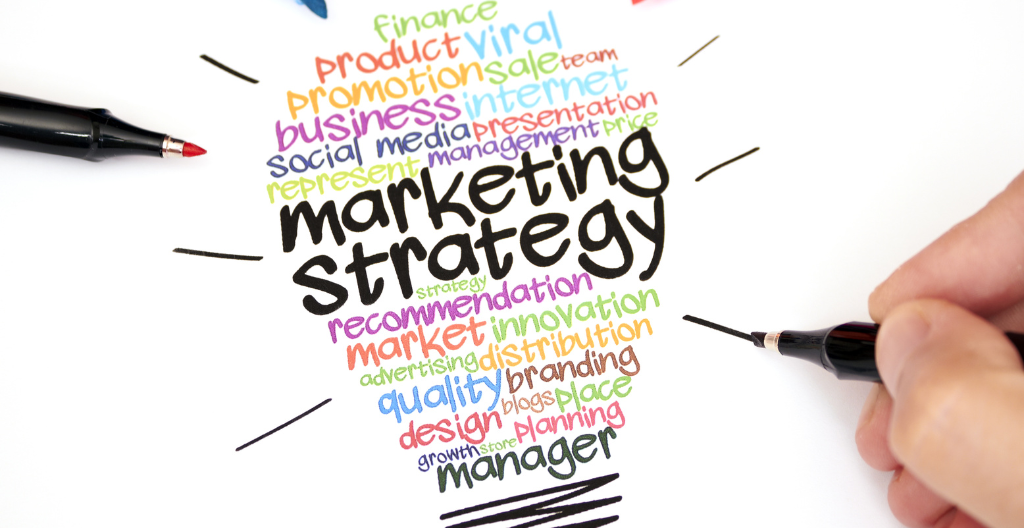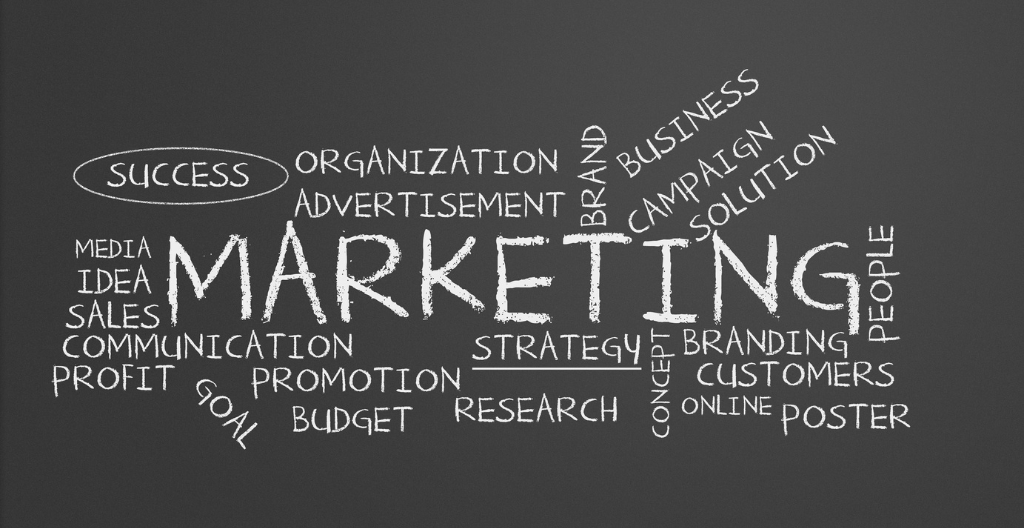What Is a Customer-Driven Marketing Strategy_
October 6, 2023What Is Influencer Marketing, and How Can It Impact Your Business_
October 6, 2023Affinity marketing, often referred to as partnership marketing, is a strategic approach that businesses use to collaborate with complementary brands or organisations to reach a shared target audience. This powerful marketing strategy capitalises on the existing trust and loyalty that consumers have for one brand and leverages it to benefit both parties. In essence, affinity marketing involves forming partnerships that make sense for your brand and create mutual value, ultimately leading to increased customer engagement, brand exposure, and revenue growth. Let’s explore how affinity marketing works and why it’s an effective tool in the modern business landscape.
Affinity Marketing: A Fresh Perspective on Building Connections
Affinity marketing is a distinctive marketing approach that sets itself apart from traditional methods through its focus on collaboration and shared values. Unlike traditional marketing, which often involves a one-way communication of promotional messages to a broad audience, affinity marketing is rooted in the concept of partnerships and relationships. It centres on the idea that by aligning with brands, organisations, or causes that share a common audience or values, businesses can more effectively engage their target demographic. Instead of relying solely on direct advertising, affinity marketing harnesses the trust and loyalty that consumers have for one brand to introduce them to another. This approach aims to create authentic connections, drive customer engagement, and foster long-term brand loyalty by tapping into the power of established relationships and shared interests.

Examples of Successful Affinity Marketing Campaigns Across Industries

-
1. Airbnb x Airbnb Experiences
Airbnb’s partnership with Airbnb Experiences connects travellers with local experts, promoting unique and personalised travel experiences. This campaign leverages the affinity between travellers seeking authentic experiences and hosts passionate about sharing their expertise.
-
2. Red Bull Stratos Space Jump
Red Bull’s sponsorship of Felix Baumgartner’s historic space jump created a buzz in the extreme sports community. It capitalised on the affinity between adrenaline junkies and Red Bull’s “gives you wings” brand message.
-
3. Nike’s Collaboration with NBA
Nike’s partnership with the NBA resulted in co-branded merchandise and exclusive apparel collections. The campaign targets basketball fans who have a deep affinity for the NBA and its athletes.
-
4. Spotify x Starbucks
The Spotify-Starbucks partnership provides Starbucks customers with curated playlists in stores. This campaign taps into the shared love for music and coffee, enhancing the in-store experience.
-
5. Patagonia’s Environmental Activism
Patagonia’s dedication to environmental causes aligns with its customers’ values. The brand’s affinity marketing strategy leverages its commitment to sustainability and responsible consumption.
These examples illustrate how affinity marketing can effectively engage diverse audiences by forging connections based on shared interests, values, or passions, leading to successful campaigns in various industries.
Identifying and Leveraging Affinity Groups for Targeted Marketing
Businesses can identify and leverage affinity groups by first conducting thorough market research to understand their target audience. This involves segmenting the market based on common interests, behaviours, or preferences. Social media platforms, online forums, and surveys can provide valuable insights into the formation of affinity groups. Once identified, businesses can tailor their marketing strategies to resonate with these groups, creating content, campaigns, or products that align with their shared interests or values. Leveraging affinity groups allows for more focused and effective marketing efforts, as businesses can engage with specific customer segments that are more likely to connect with and support their brand. This personalised approach enhances customer engagement and fosters brand loyalty, ultimately driving business success.

The Role of Customer Loyalty in Affinity Marketing Success
Customer loyalty is integral to the success of affinity marketing strategies as it fosters strong, lasting connections between businesses and their target audience. When businesses effectively identify and engage with affinity groups, they create a sense of belonging and shared values, which can lead to increased customer loyalty. Affinity marketing allows brands to resonate with customers on a deeper level, driving them to become advocates who not only make repeat purchases but also actively promote the brand within their affinity groups. This word-of-mouth marketing can significantly enhance brand reputation and customer trust. In turn, loyal customers are more likely to provide valuable feedback, participate in user-generated content, and contribute to the overall growth and success of a business.

Measuring the ROI of Affinity Marketing Efforts

Measuring the return on investment (ROI) of affinity marketing efforts requires a comprehensive and strategic approach tailored to specific business objectives. One facet of this approach involves tracking key performance indicators (KPIs) that align with the goals of affinity marketing. These KPIs encompass a range of metrics, including Customer Acquisition Costs (CAC), Conversion Rates, Customer Lifetime Value (CLV), Retention Rates, Customer Engagement, Referral Traffic, Sales Attribution, and Brand Awareness. CAC helps calculate the cost of acquiring new customers within particular affinity groups, enabling businesses to compare it with other marketing channels. Conversion Rates reflect the percentage of leads or website visitors from affinity marketing initiatives that ultimately become paying customers, offering insights into conversion efficiency. CLV evaluates the long-term value of customers acquired through affinity marketing, considering their ongoing contributions to revenue. Meanwhile, Retention Rates gauge the ability of affinity marketing to retain existing customers and reduce churn within the targeted affinity groups. Customer Engagement metrics encompass various forms of interaction generated by affinity marketing campaigns, such as social media interactions, comments, or user-generated content. Monitoring Referral Traffic allows businesses to track both the volume and quality of website traffic originating from referrals within affinity groups. Sales Attribution identifies which specific affinity groups or campaigns have made the most significant contributions to overall sales and revenue. Finally, Brand Awareness measures the increase in brand visibility and recognition within the specific affinity groups being targeted. To effectively measure ROI, businesses should adopt a data-driven approach that combines these KPIs. This involves setting clear objectives, establishing benchmarks, and employing analytics tools to track, analyse, and interpret the data collected. By taking these steps, companies can gain a comprehensive understanding of the overall impact and profitability of their affinity marketing strategies. This data-driven decision-making process allows businesses to make informed choices to optimise future affinity marketing efforts, ensuring they align with their objectives and deliver tangible returns on investment.
Key Benefits of Forming Partnerships with Organisations in Affinity Marketing
Affinity marketing partnerships with organisations that share a target affinity group can yield numerous advantages for businesses:

# Enhanced Reach: Collaborating with like-minded organisations broadens your reach within the shared affinity group, exposing your brand to a larger audience. # Credibility and Trust: Partnerships with reputable organisations can enhance your brand’s credibility and trustworthiness among the affinity group members. # Cost Sharing: Shared marketing expenses, resources, and efforts can reduce the financial burden of campaigns and initiatives. # Audience Insights: Access to partner organisations’ customer data and insights can help refine your targeting strategies and customer personas. # Cross-Promotion: Mutual promotion within partner organisations can increase brand visibility and encourage cross-engagement. # Content Collaboration: Collaborative content creation can result in innovative and engaging campaigns that resonate with the affinity group. # Pooling Resources: Shared resources, such as event venues or marketing materials, can lead to cost-efficient initiatives. # Market Expansion: Partnerships can open doors to new markets or segments that were previously untapped. # Community Building: Building a community around shared values and interests can foster customer loyalty and engagement. # Feedback Loop: Partner organisations can provide valuable feedback and insights for continuous campaign improvement. # Competitive Advantage: Leveraging partnerships can provide a competitive edge by differentiating your brand within the affinity group. # Sustainability: Long-term partnerships contribute to the sustainability and longevity of affinity marketing efforts. These benefits highlight the strategic value of forming partnerships within affinity marketing, creating opportunities for mutual growth and success.
Data Analytics and Segmentation in Affinity Marketing
Data analytics and segmentation are instrumental in fine-tuning affinity marketing campaigns. By analysing customer data and segmenting audiences based on shared characteristics or behaviours, businesses can gain a deeper understanding of their affinity groups. This precision enables tailored messaging and targeted marketing efforts that resonate more effectively with specific segments. Data-driven insights also empower businesses to identify emerging trends, preferences, and opportunities within affinity groups, further enhancing the relevance and impact of their campaigns. In essence, data analytics and segmentation facilitate a more personalised and accurate approach to affinity marketing, ultimately driving higher engagement, conversion rates, and customer loyalty.

Implementing Cost-Effective Affinity Marketing Strategies for Small Businesses and Startups
Small businesses and startups can harness the power of affinity marketing to effectively compete with larger competitors while remaining budget-conscious. To achieve this, they can employ several key strategies:

Firstly, social media platforms can serve as valuable tools for building relationships with affinity groups. By engaging with the audience authentically and consistently, businesses can cultivate loyalty and trust, all within a cost-effective framework. Another effective approach is collaborating with micro-influencers, individuals with smaller but highly engaged follower bases. These partnerships tend to be more affordable than working with macro-influencers and can yield impressive results for small businesses. Segmentation, driven by data analytics, is crucial. By targeting specific subsets of their audience, businesses can ensure that their marketing efforts are highly relevant, maximising their impact without excessive expenditure. Additionally, creating tailored loyalty programs that cater to the preferences of affinity groups can help nurture strong, lasting relationships. Email marketing campaigns based on customer behaviours and preferences, as well as user-generated content initiatives, further contribute to building trust and authenticity. To gauge the effectiveness of their affinity marketing strategies, small businesses and startups should continually measure their performance using relevant metrics and be ready to adapt their approaches based on what resonates best with their specific audience. Finally, they can employ cost-effective advertising options, such as social media ads, pay-per-click campaigns, or content marketing, to effectively reach their affinity groups.
Conclusion: The Power of Affinity Marketing
In today’s dynamic business landscape, where consumers are inundated with marketing messages, affinity marketing emerges as a beacon of personalised engagement and community building. This approach transcends the conventional one-size-fits-all marketing strategies by recognising the significance of shared values, interests, and affiliations among consumers. Affinity marketing leverages the innate human desire for connection and belonging, fostering deep relationships between brands and their audiences.

The success stories of affinity marketing campaigns across diverse industries illustrate its transformative potential. By identifying and embracing affinity groups, businesses tap into passionate communities, unlocking brand loyalty, advocacy, and sustainable growth. Moreover, as technology continues to advance, data analytics and segmentation empower affinity marketing with precision and effectiveness. Affinity marketing isn’t just about transactions; it’s about building trust, sparking conversations, and creating lasting impressions. It bridges the gap between businesses and consumers, transforming them into partners in a shared journey. As businesses increasingly recognise the importance of authenticity and relevance, affinity marketing stands at the forefront, offering a pathway to meaningful connections and, ultimately, success in the modern marketplace.


